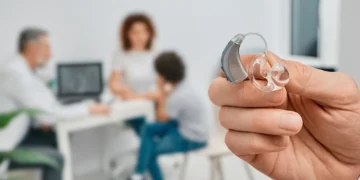A urinary tract infection (UTI) is a bacterial infection that affects any part of the urinary system, which includes the kidneys, bladder, ureters, and urethra. UTIs are one of the most common types of bacterial infections, and they can cause a range of symptoms and complications. Here’s an overview of UTIs and their treatment:
Causes:
UTIs typically occur when bacteria, most commonly Escherichia coli (E. coli), enter the urinary tract through the urethra and begin to multiply. UTIs can affect different parts of the urinary system, leading to different types of UTIs:
- Cystitis Affects the bladder and is the most common type of UTI.
- Pyelonephritis: Affects the kidneys and is a more severe form of UTI.
- Urethritis: Affects the urethra, which carries urine from the bladder out of the body.
Common Symptoms:
UTI symptoms can vary but often include:
- Frequent, urgent need to urinate.
- Pain or a burning sensation during urination.
- Passing small amounts of urine.
- Cloudy, dark, bloody, or strong-smelling urine.
- Pain or pressure in the lower abdomen or back.
- Fatigue or shakiness.
- Fever or chills (more common with pyelonephritis).
Treatment:
The treatment for a UTI typically involves antibiotics to kill the bacteria causing the infection. Here’s what you need to know about UTI treatment:
- Antibiotics: Your healthcare provider will prescribe an appropriate antibiotic based on the type of UTI and the specific bacteria causing it. It’s essential to complete the full course of antibiotics as prescribed, even if your symptoms improve before you finish the medication. Failure to complete the course can lead to a recurrence or antibiotic resistance.
- Pain Relief: Over-the-counter pain relievers like ibuprofen can help alleviate discomfort and reduce fever associated with a UTI. For more information visit a Urologist in Karachi.
- Increased Fluid Intake: Drinking plenty of water helps flush bacteria out of the urinary tract and can alleviate symptoms.
- Urinary Alkalinizers: In some cases, your doctor may recommend urinary alkalinizers to reduce discomfort during urination.
- Avoid Irritants: Avoiding irritants like caffeine, alcohol, and spicy foods can help minimize discomfort.
Prevention:
To reduce the risk of UTIs, consider the following preventive measures:
- Stay Hydrated: Drink plenty of water to help flush bacteria out of your urinary tract.
- Urinate Regularly: Don’t hold in urine for extended periods, and make sure to empty your bladder before and after sexual activity.
- Wipe from Front to Back: After using the toilet, always wipe from front to back to prevent bacteria from the anal area from entering the urethra.
- Empty the Bladder After Sex: Urinating after sexual intercourse can help flush out any bacteria that may have entered the urinary tract.
- Avoid Harsh Feminine Products: Avoid using harsh soaps, douches, or other feminine hygiene products that can disrupt the natural balance of bacteria in the genital area.
If you suspect you have a UTI or experience symptoms, it’s essential to seek medical attention promptly to receive proper diagnosis and treatment. Untreated UTIs can lead to more severe complications, such as kidney infections. Visit a Best Urologist in Lahore to get help.


 Home
Home








